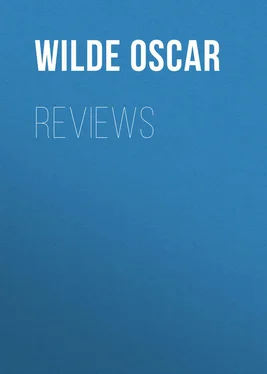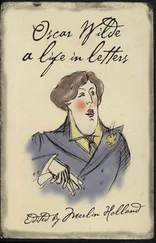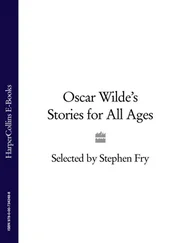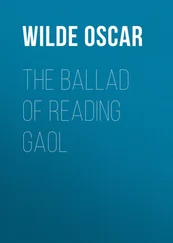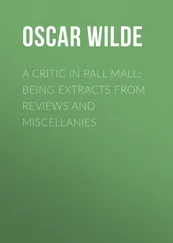Oscar Wilde - Reviews
Здесь есть возможность читать онлайн «Oscar Wilde - Reviews» — ознакомительный отрывок электронной книги совершенно бесплатно, а после прочтения отрывка купить полную версию. В некоторых случаях можно слушать аудио, скачать через торрент в формате fb2 и присутствует краткое содержание. Жанр: foreign_home, literature_19, cinema_theatre, foreign_prose, на английском языке. Описание произведения, (предисловие) а так же отзывы посетителей доступны на портале библиотеки ЛибКат.
- Название:Reviews
- Автор:
- Жанр:
- Год:неизвестен
- ISBN:нет данных
- Рейтинг книги:3 / 5. Голосов: 1
-
Избранное:Добавить в избранное
- Отзывы:
-
Ваша оценка:
- 60
- 1
- 2
- 3
- 4
- 5
Reviews: краткое содержание, описание и аннотация
Предлагаем к чтению аннотацию, описание, краткое содержание или предисловие (зависит от того, что написал сам автор книги «Reviews»). Если вы не нашли необходимую информацию о книге — напишите в комментариях, мы постараемся отыскать её.
Reviews — читать онлайн ознакомительный отрывок
Ниже представлен текст книги, разбитый по страницам. Система сохранения места последней прочитанной страницы, позволяет с удобством читать онлайн бесплатно книгу «Reviews», без необходимости каждый раз заново искать на чём Вы остановились. Поставьте закладку, и сможете в любой момент перейти на страницу, на которой закончили чтение.
Интервал:
Закладка:
As for Mr. Robertson’s preface, like most of the prefaces in the Canterbury Series, it is very carelessly written. Such a sentence as ‘I.. believe that Mrs. Piatt’s poems, in particular, will come to many readers, fresh, as well as delightful contributions from across the ocean,’ is painful to read. Nor is the matter much better than the manner. It is fantastic to say that Raphael’s pictures of the Madonna and Child dealt a deadly blow to the monastic life, and to say, with reference to Greek art, that ‘Cupid by the side of Venus enables us to forget that most of her sighs are wanton’ is a very crude bit of art criticism indeed. Wordsworth, again, should hardly be spoken of as one who ‘was not, in the general, a man from whom human sympathies welled profusely,’ but this criticism is as nothing compared to the passage where Mr. Robertson tells us that the scene between Arthur and Hubert in King John is not true to nature because the child’s pleadings for his life are playful as well as piteous. Indeed, Mr. Robertson, forgetting Mamillius as completely as he misunderstands Arthur, states very clearly that Shakespeare has not given us any deep readings of child nature. Paradoxes are always charming, but judgments such as these are not paradoxical; they are merely provincial.
On the whole, Mr. Robertson’s book will not do. It is, we fully admit, an industrious compilation, but it is not an anthology, it is not a selection of the best, for it lacks the discrimination and good taste which is the essence of selection, and for the want of which no amount of industry can atone. The child-poems of our literature have still to be edited.
The Children of the Poets : An Anthology from English and American Writers of Three Generations . Edited, with an Introduction, by Eric S. Robertson. (Walter Scott.)
NEW NOVELS
( Pall Mall Gazette , October 28, 1886.)
Astray : A Tale of a Country Town , is a very serious volume. It has taken four people to write it, and even to read it requires assistance. Its dulness is premeditated and deliberate and comes from a laudable desire to rescue fiction from flippancy. It is, in fact, tedious from the noblest motives and wearisome through its good intentions. Yet the story itself is not an uninteresting one. Quite the contrary. It deals with the attempt of a young doctor to build up a noble manhood on the ruins of a wasted youth. Burton King, while little more than a reckless lad, forges the name of a dying man, is arrested and sent to penal servitude for seven years. On his discharge he comes to live with his sisters in a little country town and finds that his real punishment begins when he is free, for prison has made him a pariah. Still, through the nobility and self-sacrifice of his life, he gradually wins himself a position, and ultimately marries the prettiest girl in the book. His character is, on the whole, well drawn, and the authors have almost succeeded in making him good without making him priggish. The method, however, by which the story is told is extremely tiresome. It consists of an interminable series of long letters by different people and of extracts from various diaries. The book consequently is piecemeal and unsatisfactory. It fails in producing any unity of effect. It contains the rough material for a story, but is not a completed work of art. It is, in fact, more of a notebook than a novel. We fear that too many collaborators are like too many cooks and spoil the dinner. Still, in this tale of a country town there are certain solid qualities, and it is a book that one can with perfect safety recommend to other people.
Miss Rhoda Broughton belongs to a very different school. No one can ever say of her that she has tried to separate flippancy from fiction, and whatever harsh criticisms may be passed on the construction of her sentences, she at least possesses that one touch of vulgarity that makes the whole world kin. We are sorry, however, to see from a perusal of Betty’s Visions that Miss Broughton has been attending the meetings of the Psychical Society in search of copy. Mysticism is not her mission, and telepathy should be left to Messrs. Myers and Gurney. In Philistia lies Miss Broughton’s true sphere, and to Philistia she should return. She knows more about the vanities of this world than about this world’s visions, and a possible garrison town is better than an impossible ghost-land.
That Other Person , who gives Mrs. Alfred Hunt the title for her three-volume novel, is a young girl, by name Hester Langdale, who for the sake of Mr. Godfrey Daylesford sacrifices everything a woman can sacrifice, and, on his marrying some one else, becomes a hospital nurse. The hospital nurse idea is perhaps used by novelists a little too often in cases of this kind; still, it has an artistic as well as an ethical value. The interest of the story centres, however, in Mr. Daylesford, who marries not for love but for ambition, and is rather severely punished for doing so. Mrs. Daylesford has a sister called Polly who develops, according to the approved psychological method, from a hobbledehoy girl into a tender sweet woman. Polly is delightfully drawn, but the most attractive character in the book, strangely enough, is Mr. Godfrey Daylesford. He is very weak, but he is very charming. So charming indeed is he, that it is only when one closes the book that one thinks of censuring him. While we are in direct contact with him we are fascinated. Such a character has at any rate the morality of truth about it. Here literature has faithfully followed life. Mrs. Hunt writes a very pleasing style, bright and free from affectation. Indeed, everything in her work is clever except the title.
A Child of the Revolution is by the accomplished authoress of the Atelier du Lys . The scene opens in France in 1793, and the plot is extremely ingenious. The wife of Jacques Vaudes, a Lyons deputy, loses by illness her baby girl while her husband is absent in Paris where he has gone to see Danton. At the instigation of an old priest she adopts a child of the same age, a little orphan of noble birth, whose parents have died in the Reign of Terror, and passes it off as her own. Her husband, a stern and ardent Republican, worships the child with a passion like that of Jean Valjean for Cosette, nor is it till she has grown to perfect womanhood that he discovers that he has given his love to the daughter of his enemy. This is a noble story, but the workmanship, though good of its kind, is hardly adequate to the idea. The style lacks grace, movement and variety. It is correct but monotonous. Seriousness, like property, has its duties as well as its rights, and the first duty of a novel is to please. A Child of the Revolution hardly does that. Still it has merits.
Aphrodite is a romance of ancient Hellas. The supposed date, as given in the first line of Miss Safford’s admirable translation, is 551 B.C. This, however, is probably a misprint. At least, we cannot believe that so careful an archæologist as Ernst Eckstein would talk of a famous school of sculpture existing at Athens in the sixth century, and the whole character of the civilisation is of a much later date. The book may be described as a new setting of the tale of Acontius and Cydippe, and though Eckstein is a sort of literary Tadema and cares more for his backgrounds than he does for his figures, still he can tell a story very well, and his hero is made of flesh and blood. As regards the style, the Germans have not the same feeling as we have about technicalities in literature. To our ears such words as ‘phoreion,’ ‘secos,’ ‘oionistes,’ ‘Thyrides’ and the like sound harshly in a novel and give an air of pedantry, not of picturesqueness. Yet in its tone Aphrodite reminds us of the late Greek novels. Indeed, it might be one of the lost tales of Miletus. It deserves to have many readers and a better binding.
Читать дальшеИнтервал:
Закладка:
Похожие книги на «Reviews»
Представляем Вашему вниманию похожие книги на «Reviews» списком для выбора. Мы отобрали схожую по названию и смыслу литературу в надежде предоставить читателям больше вариантов отыскать новые, интересные, ещё непрочитанные произведения.
Обсуждение, отзывы о книге «Reviews» и просто собственные мнения читателей. Оставьте ваши комментарии, напишите, что Вы думаете о произведении, его смысле или главных героях. Укажите что конкретно понравилось, а что нет, и почему Вы так считаете.
